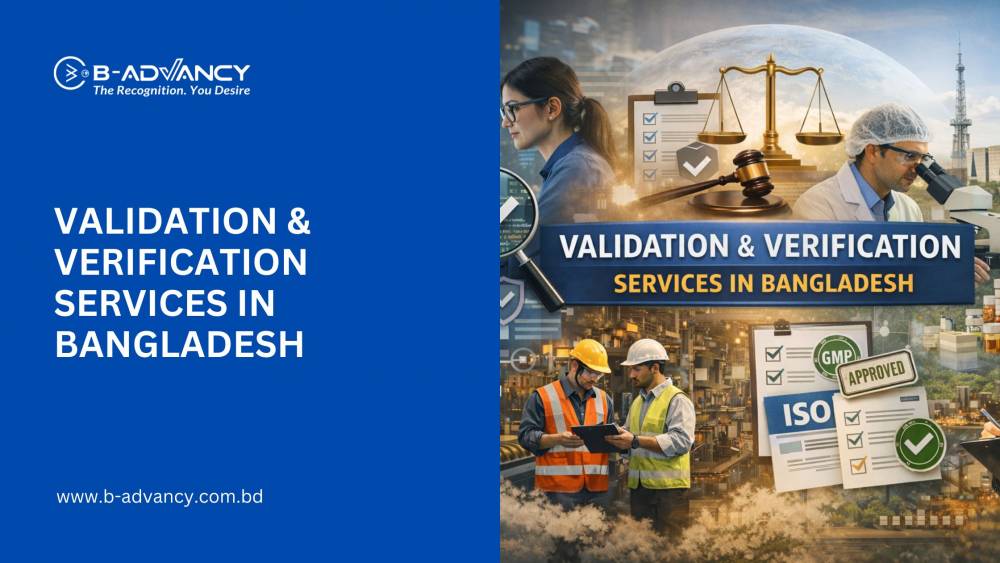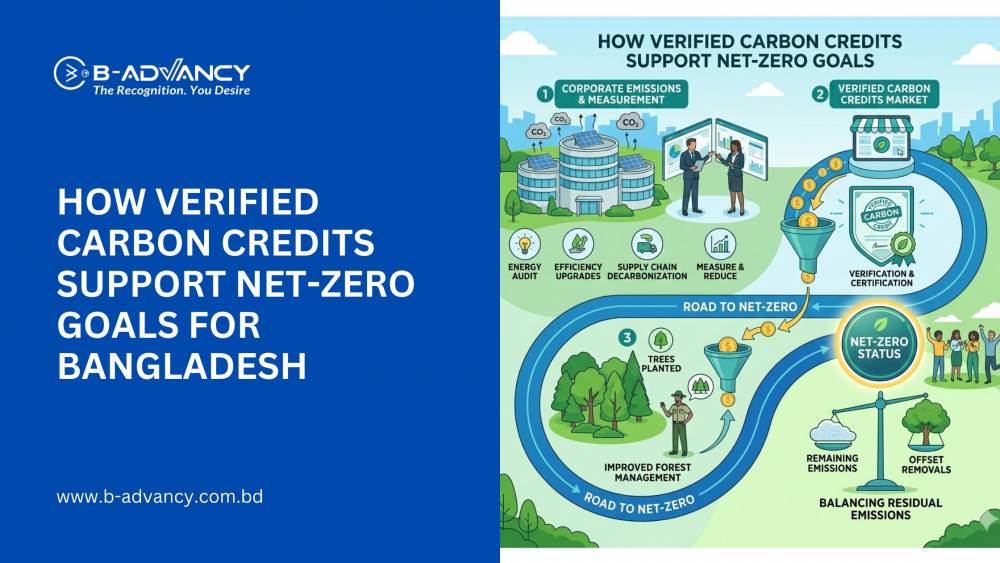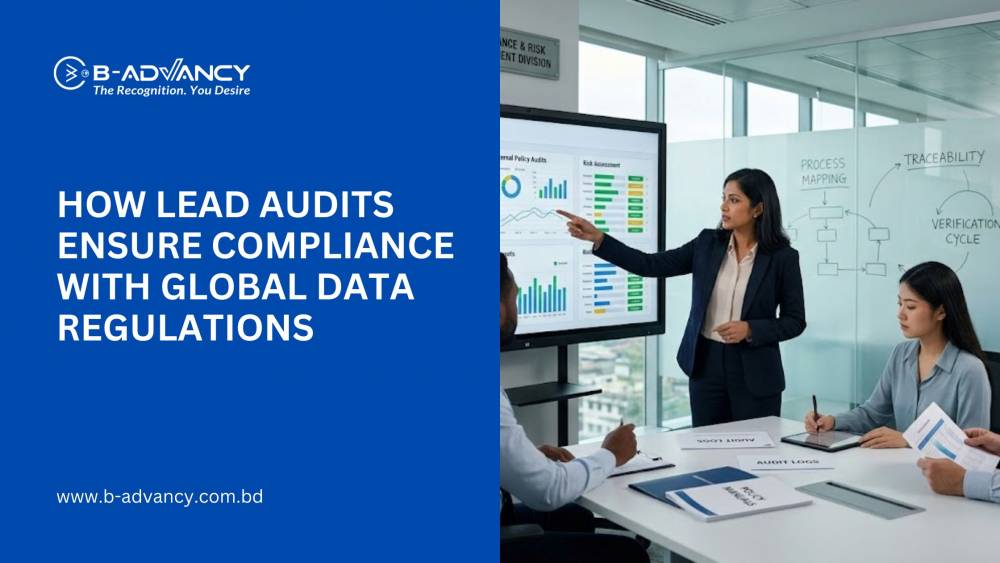As the impacts of climate change become increasingly evident, countries around the world are taking steps to reduce their greenhouse gas (GHG) emissions. Bangladesh, a country highly vulnerable to the effects of climate change, has been making significant efforts to monitor and manage its GHG emissions. To ensure transparency, accuracy, and credibility in GHG reporting, organizations in Bangladesh are turning to ISO certification for GHG inventory verification. This globally recognized certification provides a robust framework for verifying GHG emissions and supports the country’s climate change mitigation goals. In this blog, we will explore the significance of ISO certification for GHG inventory verification in Bangladesh, the benefits it offers, and how organizations can begin their certification journey.
What is GHG Inventory Verification and Why is ISO Certification Important?
Greenhouse gas inventory verification involves assessing and confirming the accuracy and reliability of an organization’s reported GHG emissions. Accurate GHG inventories are crucial for organizations to track their emissions, develop effective emission reduction strategies, and comply with national and international environmental regulations. ISO certification, particularly ISO 14064-3, offers a standardized framework for verifying GHG emissions and ensures that organizations follow best practices in reporting and managing their emissions.
ISO 14064-3:2019, "Specification with Guidance for the Verification and Validation of Greenhouse Gas Statements," outlines the process for verifying GHG inventories and provides guidelines for conducting third-party assessments. This certification is essential for organizations in Bangladesh that are committed to reducing their carbon footprint and demonstrating transparency in their environmental performance.
Why GHG Inventory Verification Matters for Bangladesh
Bangladesh is one of the most climate-vulnerable countries in the world, facing frequent natural disasters such as floods, cyclones, and rising sea levels. As part of its commitments under the Paris Agreement, Bangladesh aims to reduce GHG emissions and enhance climate resilience. Accurate GHG inventory verification is a critical component of these efforts, as it helps the government and organizations track progress toward emission reduction targets.
Organizations across various sectors, including manufacturing, energy, transportation, and agriculture, contribute to the country’s overall GHG emissions. By obtaining ISO certification for GHG inventory verification, businesses in Bangladesh can ensure that their emission reports are reliable and credible, aligning with national climate goals and international environmental standards.
Key Features of ISO 14064-3 for GHG Inventory Verification
-
Third-Party Verification
ISO 14064-3 requires third-party verification of an organization’s GHG inventory. This independent assessment ensures that the reported emissions are accurate and reliable, providing confidence to stakeholders, including regulators, investors, and customers. -
Verification Process
The standard outlines a systematic process for verifying GHG inventories, including planning, conducting the verification, and reporting findings. This helps organizations ensure that their emission data is comprehensive and free from material misstatements. -
Transparency and Accountability
ISO 14064-3 emphasizes transparency in GHG reporting, ensuring that organizations disclose the methods and data used to calculate emissions. This promotes accountability and builds trust with stakeholders. -
Alignment with International Standards
ISO 14064-3 is recognized globally and aligns with other international standards for GHG management and reporting, including the GHG Protocol and the United Nations Framework Convention on Climate Change (UNFCCC) guidelines.
Benefits of ISO Certification for GHG Inventory Verification in Bangladesh
-
Enhanced Credibility and Trust
ISO certification provides assurance that an organization’s GHG emissions are accurately measured and reported. This enhances the credibility of the organization’s sustainability initiatives and builds trust with stakeholders, including regulators, investors, and customers. -
Regulatory Compliance
As Bangladesh strengthens its environmental regulations to align with global climate goals, organizations that achieve ISO 14064-3 certification are better positioned to comply with local and international GHG reporting requirements. Certification helps businesses avoid potential penalties for non-compliance and contributes to national climate targets. -
Improved Environmental Performance
By obtaining ISO certification, organizations can identify areas where they can reduce their GHG emissions and improve overall environmental performance. This can lead to operational efficiencies, cost savings, and a reduced carbon footprint. -
Competitive Advantage
ISO-certified organizations in Bangladesh can differentiate themselves by demonstrating their commitment to sustainability and environmental responsibility. This can help attract environmentally conscious customers, investors, and business partners, particularly in industries with high GHG emissions, such as energy, manufacturing, and transportation. -
Contribution to National Climate Goals
ISO certification for GHG inventory verification aligns with Bangladesh’s national climate goals, including its Nationally Determined Contributions (NDCs) under the Paris Agreement. Organizations that accurately measure and report their emissions can contribute to the country’s efforts to reduce its carbon footprint and mitigate the impacts of climate change.
Local Regulations and Government Support for GHG Management
In Bangladesh, the government has implemented various policies and regulations to address climate change and promote sustainable development. The Bangladesh Climate Change Strategy and Action Plan (BCCSAP) serves as the country’s roadmap for addressing climate change, and the Ministry of Environment, Forest and Climate Change (MoEFCC) is responsible for overseeing environmental policies and GHG management.
The Department of Environment (DoE) also plays a key role in monitoring industrial emissions and ensuring compliance with environmental standards. While Bangladesh currently does not have mandatory GHG reporting requirements for all industries, organizations are encouraged to adopt voluntary measures to manage their emissions and support national climate objectives.
For more information on government regulations related to environmental management and GHG reporting, organizations can visit the Ministry of Environment, Forest and Climate Change (MoEFCC) here and the Department of Environment (DoE) here.
Steps to Achieve ISO Certification for GHG Inventory Verification
-
Initial Assessment and Gap Analysis
Begin by assessing your current GHG inventory practices against the requirements of ISO 14064-3. Conduct a gap analysis to identify areas where improvements are needed to meet the standard’s verification criteria. -
Develop and Implement GHG Management Processes
Establish robust processes for measuring, reporting, and verifying GHG emissions. This includes documenting your methodology, data sources, and emission factors to ensure transparency and accuracy. -
Conduct Internal Reviews and Audits
Regular internal reviews and audits are essential to ensure that your GHG inventory is accurate and compliant with ISO 14064-3 requirements. This helps identify potential discrepancies and opportunities for improvement. -
Choose a Certification Body
Select a reputable certification body, such as B-ADVANCY Certification Limited, to conduct an external verification of your GHG inventory. This independent verification is a critical step in achieving ISO certification. To contact them: Email: bangladesh@b-advancy.com | Call: +8801612264559 -
Achieve Certification and Maintain Compliance
After a successful verification audit, your organization will receive ISO 14064-3 certification. To maintain certification, it’s important to continuously monitor and improve your GHG management practices.
Conclusion
ISO certification for GHG inventory verification is an essential tool for organizations in Bangladesh that are committed to managing their greenhouse gas emissions and contributing to the country’s climate goals. By achieving ISO 14064-3 certification, businesses can enhance their credibility, improve environmental performance, and comply with local and international regulations.


13.jpg)



































































































































































































